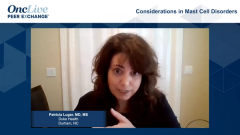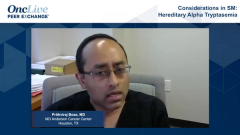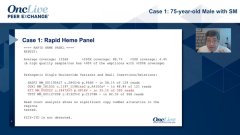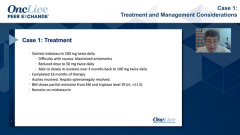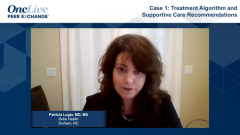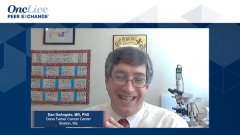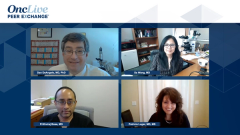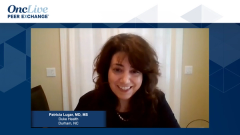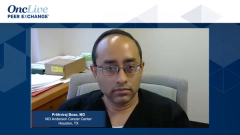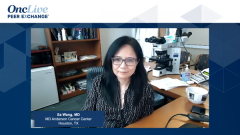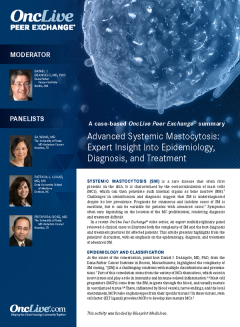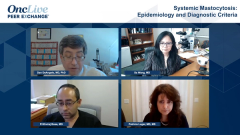
Unmet Needs in SM Treatment
The panel of experts in SM highlight the unmet needs in the clinical care of systemic mastocytosis.
Episodes in this series

Dan DeAngelo, MD, PhD: I want everybody to have an opportunity to comment on this really nice review of 6 highlighted cases to try to review the breadth of the world of systemic mastocytosis. Dr Bose, let’s start with you.
Prithviraj Bose, MD: If I may continue a little bit the same thread that you and Dr Wang were discussing just now. I think you both made great points. Maybe there are these cases where KIT is driving the condition, and they would respond to avapritinib. But today, the way to get avapritinib would be to find those mast cells. I think that’s an excellent point that ties what both of you were saying.
Dan DeAngelo, MD, PhD: Dr Lugar, any thoughts on the complex management from a different perspective than an oncologist?
Patricia Lugar, MD, MS: These are great cases, and I really feel that having that multidisciplinary approach, having partners in care, not only helps us identify patients but also helps us to think about their best care and their best cases. Having pathology looking for and thinking carefully about how to process the specimen so they can have a higher diagnostic yield. Having good partners in GI [gastroenterology] oncology certainly helps the allergist. I feel like these types of discussions are great to educate all of the health care providers who might be seeing it, and who may not even be aware, and to seek out your team approach so that we can do best by these patients.
Dan DeAngelo, MD, PhD: I work in a luxury of riches. We have allergy/immunology, which I am sure you know, in our group. We have identified a gastroenterologist who seems to have taken ownership. We have 2 pathologists who have taken ownership, a molecular group, and then I wear the hat as the hematologist. Thus, it’s all of us together and sometimes it’s “tag you’re it,” depending upon what is the problem. If the patient needs cytoreductive therapy, it’s me, but more often than not I am having trouble with the GI or the allergy component, and it’s nice to be able to pass the baton to a colleague. Dr Wang, any last thoughts on the histopathology?
Sa Wang, MD: I think the people in general practice should raise suspicion, that’s the most important thing. I think even though you are not 100% sure the patient may have mast cell, just say, “Rule out mast cell, or rule out this.” At least give us something that you are looking for, then we can initiate the proper work-up.
Dan DeAngelo, MD, PhD: Thank you. With that, I want to thank my esteemed colleagues, Dr Bose and Dr Wang from MD Anderson [Cancer Center], Dr Lugar from [Duke Health in] North Carolina, and myself from Dana-Farber [Cancer Institute]. I want to thank you for participating in this enriching and informative discussion. I want to thank our audience as well. I hope that you found this OncLive® Peer Exchange panel discussion to be engaging, and hopefully it’s helpful for your understanding for optimal care of patients with systemic mastocytosis. Thank you very much.
Transcript edited for clarity.


